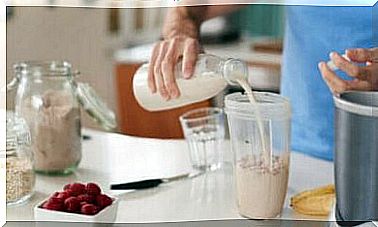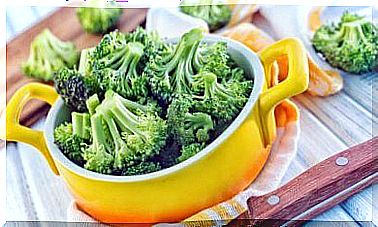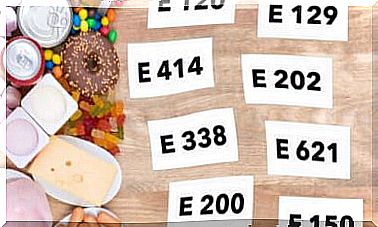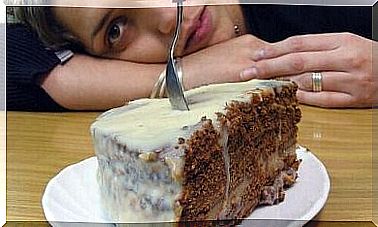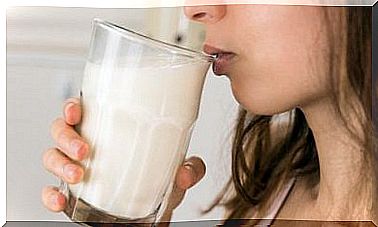Seven Foods Rich In Zinc
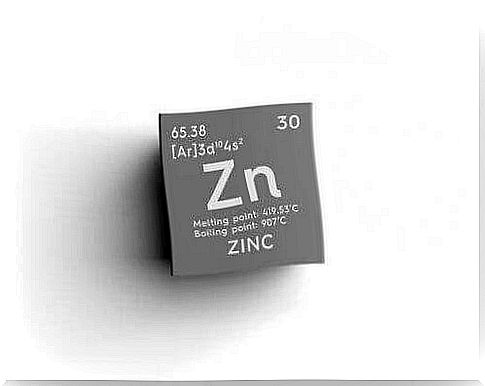
In this article we explain what zinc is and what the benefits of zinc are. We also talk about the recommended daily intake and give you the top seven foods that are rich in zinc. Also find out what can happen as a result of a zinc deficiency. So read on for more information!
What is Zinc?
Zinc is a trace element of which we only need very small amounts. It is an essential mineral for the normal functioning of your cells.
Zinc plays a role in tissue formation and the production of hormones and proteins. In addition, it is involved in most chemical reactions involving enzymes.
Zinc is mostly found in the muscles, bones, brain, kidneys and liver. In addition, we find higher concentrations of this mineral in the semen, eyes and prostate.
The recommended amount for zinc
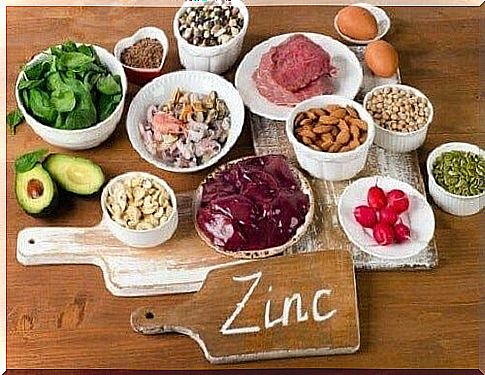
The need for zinc differs according to age and gender. The recommended amount is between 10 and 13 mg per day. Below we give you the recommended amount per age group:
- Babies between 0 and 6 months: 2 mg
- Babies between 7 and 12 months: 3 mg
- Toddlers between 1 and 3 years: 3 mg
- Children between 4 and 8 years: 5 mg
- Children between 9 and 13 years: 8 mg
- Teenage boys between 14 and 18 years old: 11 mg
- Adult men: 11 mg
- Teenage girls between 14 and 18 years: 9 mg
- Adult women: 9mg
- Pregnant women: 11 – 12 mg
- Breastfeeding women: 12 – 13 mg
Seven foods rich in zinc
1. Meat
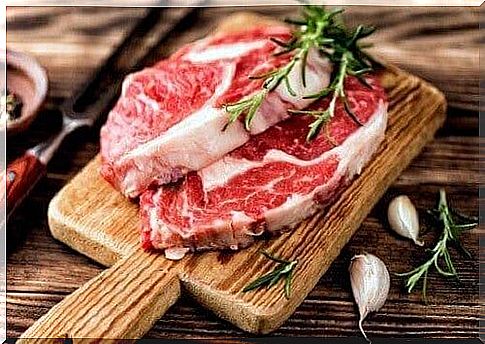
Meat is very rich in zinc and therefore a good source to get enough zinc.
- This is especially true for liver. This can contain up to 7.3 milligrams of zinc per 100 grams.
- Beef can contain up to 6.2 milligrams of zinc per 100 grams.
- Pork and pork liver are next in line for high amounts of zinc.
Poultry ranks third among the meats rich in zinc. It’s not just healthy and easy to find. Chicken and turkey contain up to 5 milligrams of zinc per 100 grams.
2. Seafood
You can eat both seafood and shellfish if you want to get more zinc. These foods are very rich in zinc.
- Mussels are one of the foods with the highest amount of zinc. This can be up to 7 milligrams per 100 grams.
- Another great choice is crab. It provides about 4.7 milligrams of zinc per 100 grams.
3. Nuts
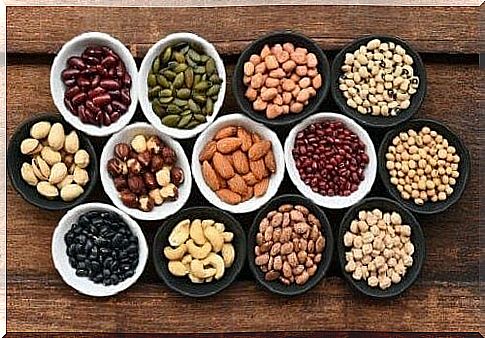
Nuts such as hazelnuts and almonds are also a good example of foods rich in zinc. They can contain up to 4 milligrams of this mineral per 100 grams.
4. Dairy products
Some other examples of foods rich in zinc are dairy products such as yogurt, milk and cheese. Cheese, especially cheddar, contains a significant amount of zinc. However, you should eat it in moderation. After all, it contains a lot of calories and salt.
5. Grains and Seeds
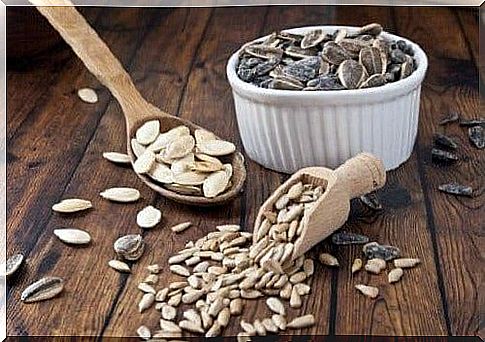
Whole grains are a good way to add zinc to your diet. However, your body will not absorb them as well because they contain phytic acid.
The phytic acid in whole grains can hinder the absorption of some micronutrients. However, yeast reduces the content of the phytic acid . It thus promotes the absorption of zinc.
To absorb zinc better, it is best to eat the following products:
- whole wheat bread with yeast
- oatmeal
- pumpkin seeds
- brewer’s yeast
6. Cocoa
Dark chocolate is beneficial in many ways. For example, it can help protect the immune system. In addition, it can be useful for people with a zinc deficiency.
- A 100 gram piece of unsweetened dark chocolate contains 10 mg of zinc. This is therefore almost 100% of the recommended daily amount.
- In addition, 100 grams of unsweetened cocoa powder contains 40% of the recommended daily amount of zinc.
7. Supplements Rich in Zinc
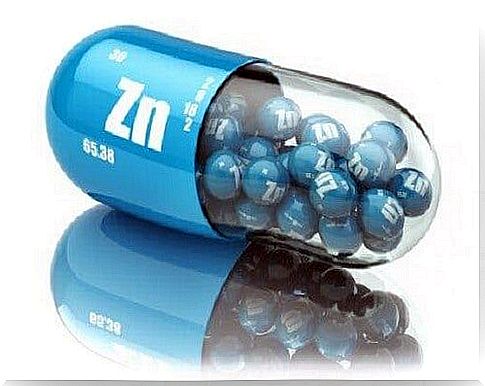
Zinc supplements are intended for people who are zinc deficient. However, you should also remember that too much zinc can also cause health problems. That’s why we recommend that you only take supplements with a doctor’s prescription.
The positive effects of zinc on health
We’ve already mentioned it. Zinc plays a role in various processes of metabolism. It also strengthens various enzymes and stimulates the immune system and neurological functions.
Zinc also plays an important role in cell membrane development and gene expression. Some studies have identified zinc as a potential treatment for:
- common cold symptoms
- macular degeneration (an eye condition)
- diabetes mellitus
- HIV/AIDS
A zinc deficiency can cause problems in the physical development of children. It can also lead to complications during pregnancy and weaken the immune system. This deficiency can also increase the risk of contracting infections. So it is important that you add foods rich in zinc to your diet.
Contraindications
More than 300 mg of zinc per day is toxic. In that case, stomach problems, blood in the urine or lethargy may develop. An excess of zinc can also affect the absorption of copper. This can then cause a deficiency of copper that can eventually lead to anemia, arrhythmia or fatigue.
A balanced and varied diet is therefore always the healthiest way to obtain all the nutrients you need for the proper functioning of your body.
